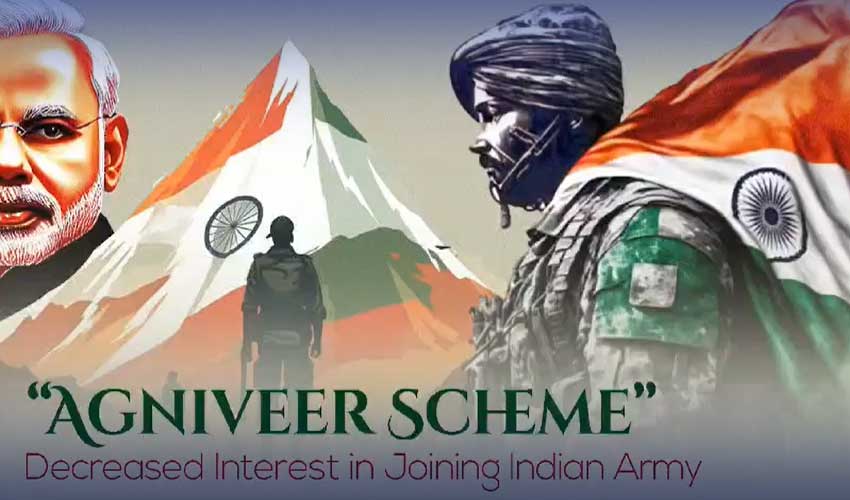India's Agnipath military recruitment scheme is facing scrutiny following reports of suicides among recruits and declining enlistment numbers. The scheme, introduced by the Modi government, has been a subject of controversy since its inception.
According to The Times of India, an Agniveer (recruit under the Agnipath scheme) named Shrikant Chaudhary died by suicide in Agra on July 2. This incident adds to a reported total of 18 suicides linked to the scheme, raising concerns about the mental health and financial stability of recruits.
The Agnipath scheme offers short-term military service contracts, typically lasting four years, with limited benefits compared to traditional military service. Critics argue that the lack of long-term job security and pension benefits may be contributing to the stress experienced by recruits.
Defense experts have expressed concerns about the scheme's impact on military readiness, citing the shorter training period and potential security risks when large numbers of semi-trained personnel are released after their short service.
The scheme has also reportedly led to a decrease in military enlistment numbers, with some potential recruits opting for alternative career paths or seeking opportunities abroad.
Families of deceased Agnipath recruits have reported issues with receiving promised compensation, further fueling debate about the scheme's implementation and support systems.
As discussions continue, the long-term implications of the Agnipath scheme on India's military structure and national security remain a topic of ongoing analysis and debate.



























